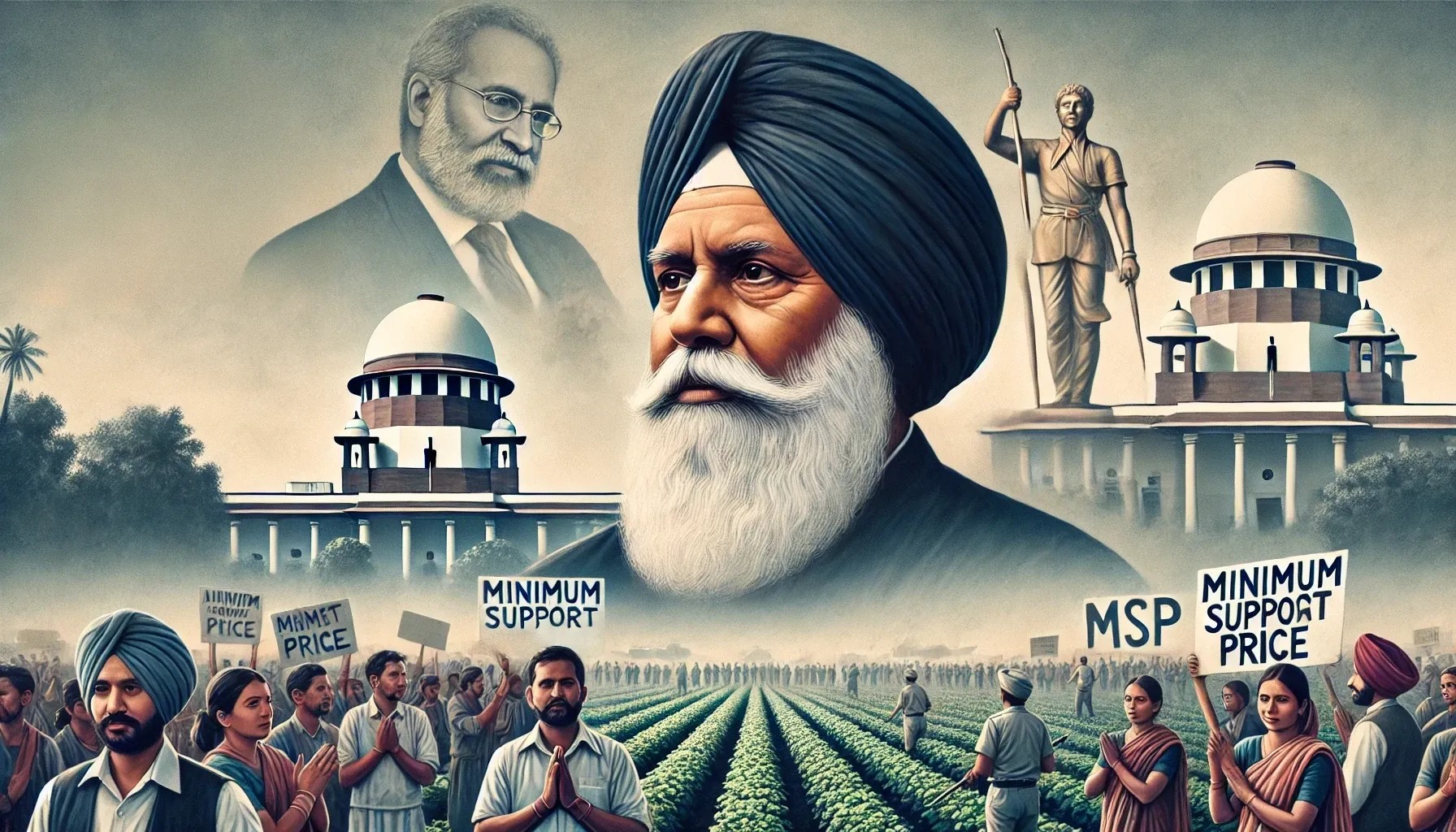The Supreme Court clarified that its orders for medical aid to fasting farmer leader Jagjit Singh Dallewal were not aimed at ending his protest, but to ensure his health while respecting his right to dissent.

The Supreme Court of India has clarified that its directive to provide medical assistance to fasting farmer leader Jagjit Singh Dallewal was not intended to pressure him to end his hunger strike. Dallewal, a prominent figure in the ongoing farmers’ protests demanding a minimum support price (MSP) for crops, has been on a hunger strike as a symbolic gesture to highlight the plight of farmers. The Court emphasized that its primary concern was to safeguard his life without undermining his commitment to the protest.
Court’s Observations and Clarifications
Misinterpretation of Court Orders
- A Bench comprising Justices Surya Kant and Sudhanshu Dhulia addressed concerns over how its orders were being portrayed.
- The Bench stated: “There is a deliberate attempt in the media by your State (Punjab) government officers to give an impression that the Court is pressuring him (Dallewal) to break the fast. This is not true.”
- The Court reiterated that its orders were focused solely on ensuring Dallewal’s health while allowing the protest to continue.
Criticism of Punjab Government’s Role
- The Court criticized actions and statements by the Punjab government that suggested the judiciary was attempting to weaken the farmers’ protests by influencing Dallewal to end his fast.
- The Bench emphasized: “Shifting to a hospital does not mean the fast is broken. Our concern is no harm to his life. His life is precious as a farm leader.”
Importance of Medical Assistance
Safeguarding Dallewal’s Life
- The Court highlighted the importance of ensuring that Dallewal receives necessary medical aid, emphasizing that protecting his life was a priority.
- The Bench remarked: “We just said let his health be taken care of, and then his fast can go on.”
Recognition of Dallewal’s Contribution
- Acknowledging Dallewal’s commitment to the farmers’ movement, the Court noted that he is not aligned with any political ideology and is solely dedicated to advocating for the rights of farmers.
Background on the Farmers’ Protests
- Farmers across India have been protesting for the implementation of a minimum support price (MSP) to ensure fair remuneration for their crops.
- Dallewal’s hunger strike has become a symbol of the farmers’ ongoing struggle for recognition and justice.
- Farmers have highlighted issues such as rising input costs, inadequate market prices, and delays in government policies. The protests aim to secure long-term solutions for these systemic problems.
Reactions and Responses
Farmers’ Concerns
- Dallewal and other protest leaders have expressed concerns that any attempt to provide medical aid might weaken the movement.
- The Court addressed these concerns, clarifying that medical aid is necessary to preserve Dallewal’s life and does not diminish the legitimacy of the protest.
Media Coverage and Misrepresentation
- The Court criticized sections of the media for misrepresenting its orders, creating confusion about its intentions.
- It urged responsible reporting to ensure that public discourse around the protests remains informed and objective.
Source: TIMES OF INDIA





